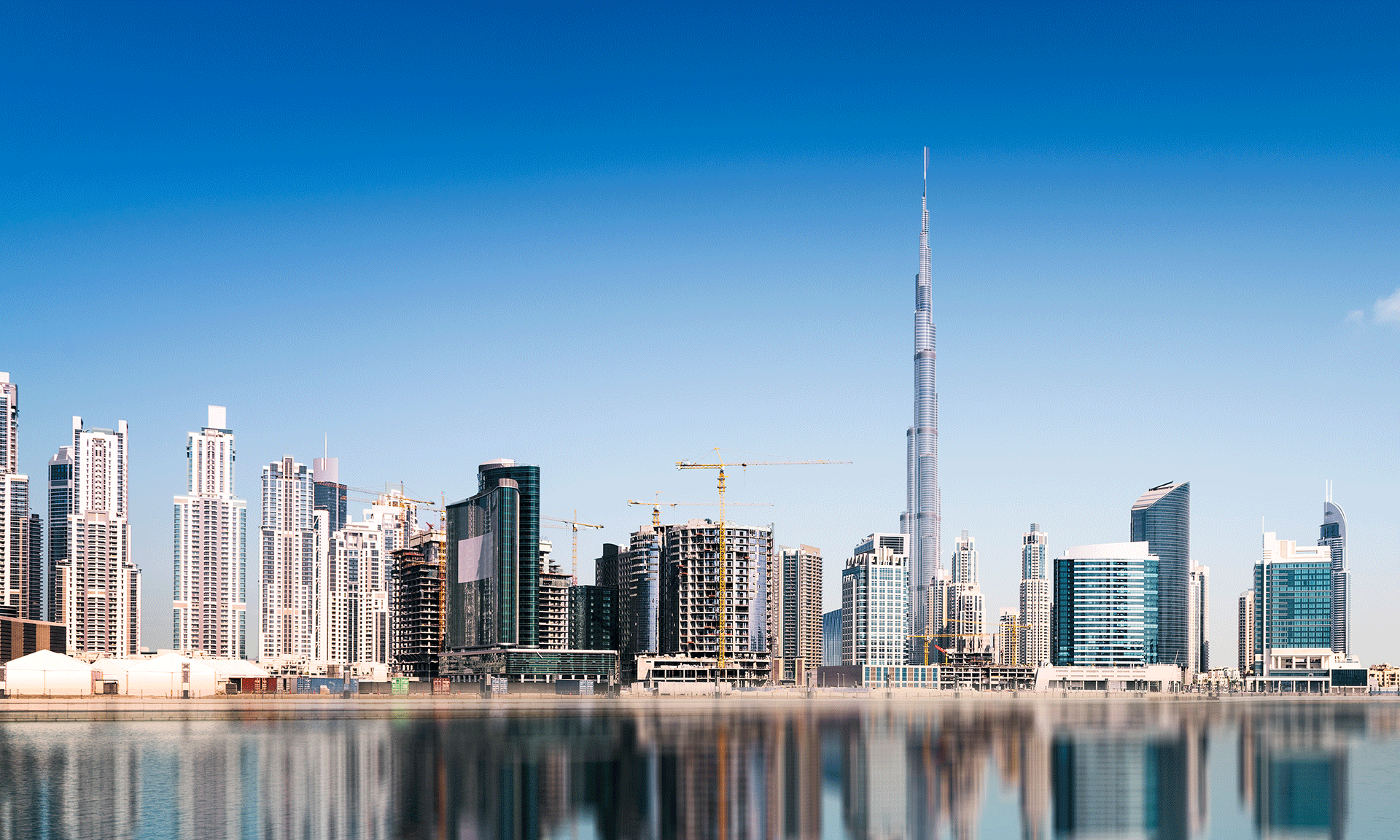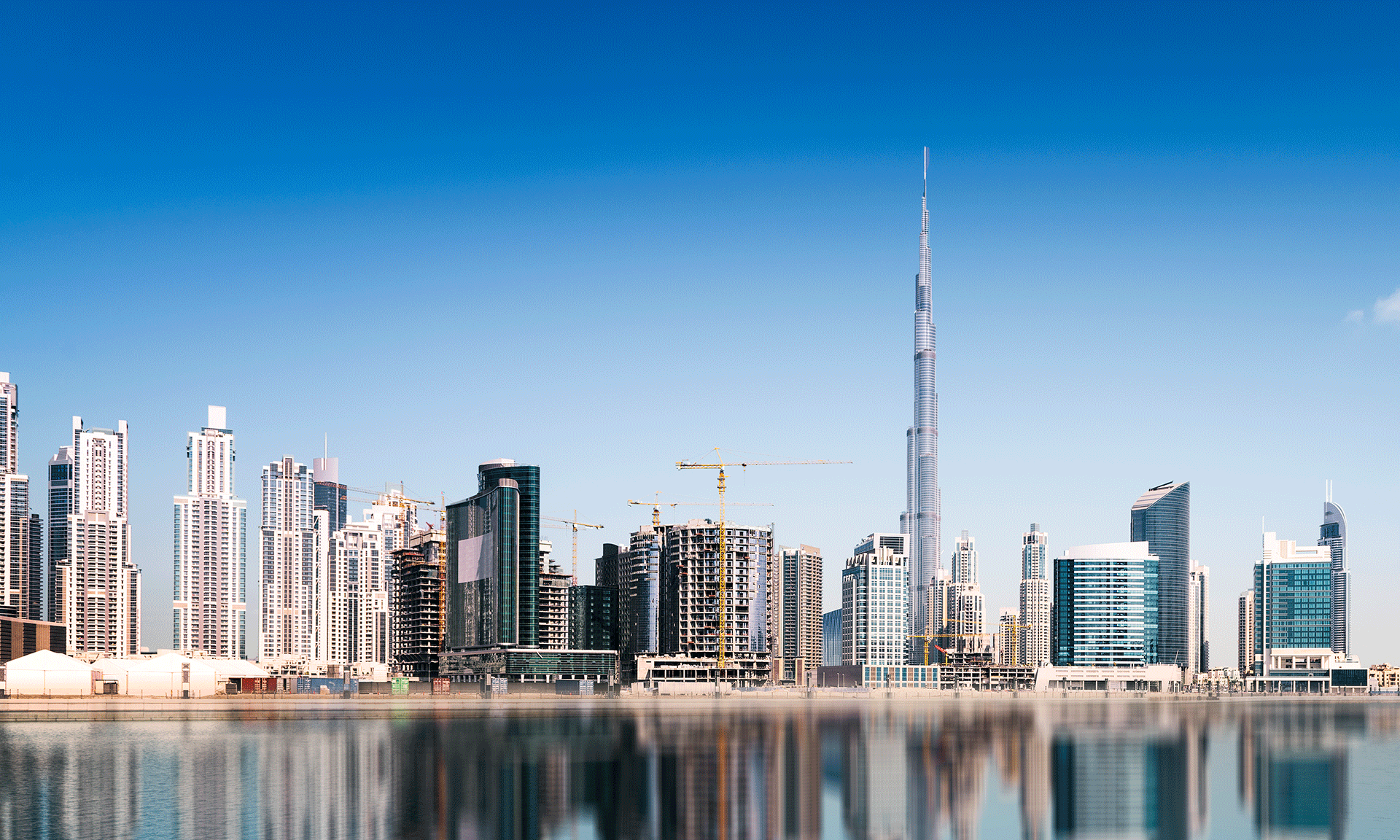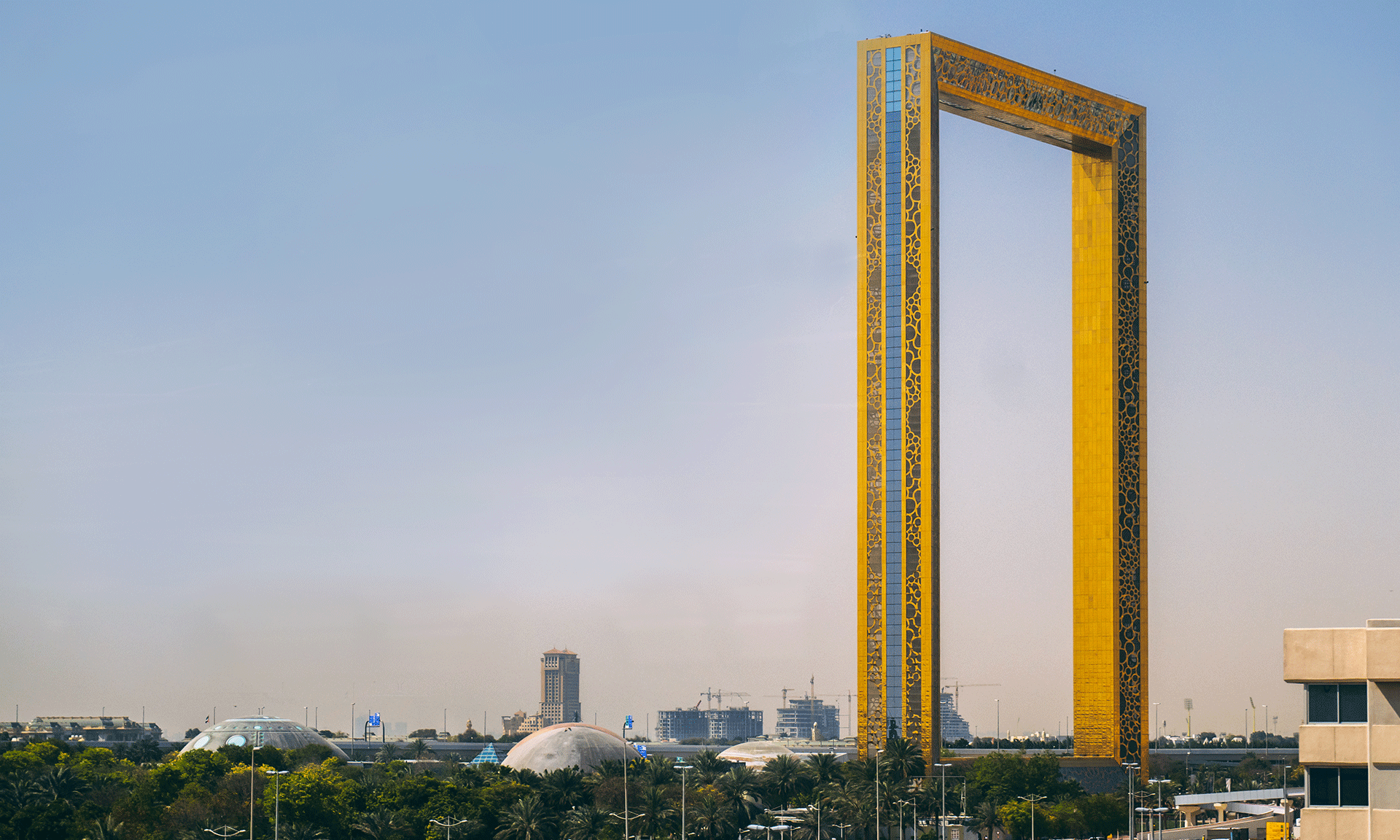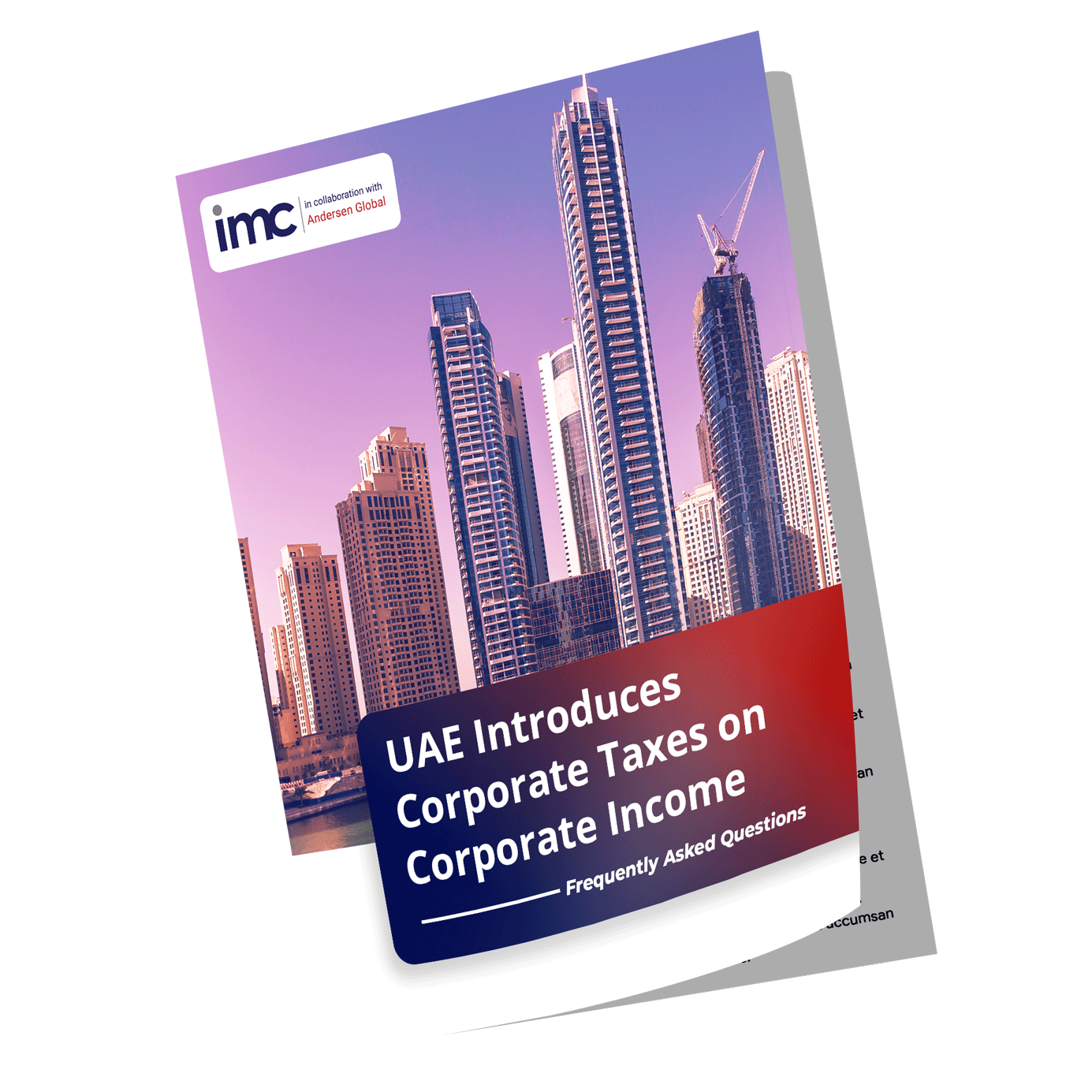
- NEWSLETTER,U.A.E
- July 13, 2022
Current Scenario
Access to easy financing has long been the most serious challenge encountered by entrepreneurs while working towards the growth and expansion of their businesses. The GCC nations, however, have introduced several business-friendly policies in recent times and attracted large businesses and in turn, venture capitalists (VCs) and angel investors to the respective countries.
The VCs and angel investors prefer innovative markets providing outstanding regulatory environments and favourable economic policies and having a strategic geographical location for easy access to global markets. As Dubai fulfils all these preference criteria, it has become a breeding ground for startup funding by VCs and angel investors.
Dubai focuses on and also strives on becoming a one-stop destination for startups, and in recent years, Dubai’s startup ecosystem has witnessed a significant spike in the numbers of investors and entrepreneurs.
In 2022, Dubai has topped the list in Global Entrepreneurship Index, leaving behind developed world economies including the United States, Canada, Japan, the United Kingdom and a few notable EU countries, and bearing the testimony of an advanced and agile trade and investment framework.
Dubai’s progressive policy reforms, proactive and business-friendly regulations, and sector-specific business districts have been instrumental in creating this global entrepreneurial leadership. A regularly flowing and constantly filling-in investment pool, however, would be the key to retaining this title and sustaining the growth of startups in the emirate.
The latest Dubai Chamber statistics reveal that MENA Region is home to 587 companies having an average annualized return of a minimum of 20% in the past three years and these scaleups have mopped up almost USD 9.1 billion through VC funding, an increase of 47% since 2020.
60% of VC funding of MENA scaleups has been contributed by the UAE’s scaleups and
Dubai retained the hot spot by claiming the majority of funding and being home to most of the technology companies in the region. MAGNiTT, a venture data analytics platform also reported the highest ever VC funding in the GCC region and Dubai is in the driver’s seat.
The in5, an enabling platform for startups also witnessed billion-dollar investment in 2021 mainly accrued from VCs and angel investors.
Dubai with sector-specific business ecosystems having Dubai Media City, Dubai Design District and Dubai Internet City offers huge business appeal to large multinationals and thus attracts VCs and angel investors. The local startup community in Dubai is thriving and in turn, creating more funding opportunities.
Startup Funding Opportunities
Every stage of business growth for a startup requires fund infusion to keep their activities running. Usually, during the early stages funding comes from family and friends, but as the company grows to the pre-seed and seed stages, access to bigger investments becomes a must for long-lasting growth.
The incubators e.g. in5, FinTech Hive, TechStars Dubai, Turn8, Astrolabs etc. then come into the picture and establish linkage between the entrepreneur and potential investors and business experts for continuing business activities.
Trusted mentors from similar fields also play vital roles by providing access to networks that hold membership of important people e.g. HNIs. As startups mature from their infancy to a growth phase, angel investors can also become a viable and popular route for funding in exchange for equity ownership and infusing large sums of capital into the startup.
Future of Funding
Hassan Al Hashemi, Vice President of International Relations at Dubai Chamber, noted, ” We have become a hub for VC investors.” He also pointed out various government initiatives such as free zone incubator programs that offer a business-setup framework, co-working space, knowledge and partnerships. Hashemi also emphasized, “We will continue supporting a growing number of startups and contribute to the country’s digital economy.”
The rise in startup funding has been globally trending with a rise in the global unicorn number that registered 1,070 startups within the unicorn community.
Under the entrepreneurial drive, Dubai is also promoting an increased number of companies with USD 1 billion valuation enhancing investment opportunities and unlocking huge potential for business entities.
VC firms are also planning for integrated-hub to enable startups display their innovative ideas to potential investors. The startups will also be aided with legal and technical advice besides being mentored from time to time.
Creating Industry-focused networking community is also on the agenda of VCs and industry experts believe that with a flourishing startup ecosystem, Dubai has become successful in making the city attractive for venture capitalists and angel investors to channel their funds.

- NEWSLETTER, U.A.E, INDIA
- July 12, 2022
On 9 June 2022, the Union Cabinet of Ministers chaired by the Prime Minister, Shri Narendra Modi, approved the proposal for signing a bilateral Memorandum of Understanding (MoU) between India and the United Arab Emirates (UAE) on Cooperation in the field of Industries and Advanced Technologies.
The MoU followed a resolution to boost up joint ventures in the area of defence after India and UAE convened a series of meetings focused on energy transition. Sultan Al Jaber, the Minister of Industry and Advanced Technology of UAE visited New Delhi on May 26.
India UAE bilateral relation has matured over the years since the creation of UAE in 1971 and the two countries share social, political and economical linkages. Importantly, the UAE is the eighth largest investor in India with an estimated investment of $18 billion whereas Indian investments in the Middle East federation stand at an estimated USD 85 billion.
Growing India-UAE economic and commercial relations contribute to the stability and strength of a rapidly diversifying and deepening bilateral relationship between the two countries. India-UAE bilateral trade, valued at US$ 180 million (Rs.1373 crore) per annum in the 1970s has increased to USD 60 billion (Rs.4.57 lakh crore) making the UAE, India’s third-largest trading partner for the year 2019-20 after China and the US.
India and the UAE have already entered into a bilateral “Comprehensive Economic Partnership Agreement” (CEPA) recently in February 2022 and this agreement, in the light of the recent CEPA has the potential to boost bilateral trade between the two countries from USD 60 billion (Rs.4.57 lakh crore) to USD 100 billion (Rs.7.63 lakh crore) over the next five years.
The MoU focuses on developing and strengthening industries in both countries through advanced technology transfer, deployment of smart and innovative technologies in industries and bilateral investment. Employment generation is also highly likely across both the economies and may attract prospective Indian businesses for expanding overseas and doing business in UAE.
Both countries agreed on continuous monitoring and progress assessment on key priority areas in bilateral science, technology, and innovation projects. Cooperation in the area of standardisation would also be a part of and include metrology, conformity assessment, accreditation, and halal certification.
This MoU will likely increase research and innovation in all areas of bilateral cooperation, especially in the areas of Artificial Intelligence, Industry 4 smart technologies, Renewable Energy, advanced Healthcare and Life sciences on successful implementation of the same. This would also result in increased growth potential in the advanced technology sectors, increased domestic output, higher exports, and a lowering in imports. This would also inspire Indian investors to invest in technology company formation in Dubai UAE.
This MoU on advanced technology would also result in meeting the objective of Atmanirbhar Bharat, a phrase used and popularized by the Hon’ble Indian Prime Minister in making India a self-reliant nation.
India has always been a crucial and integral part of the international technology research and development ecosystem and over the years, has been working with countries and organisations to encourage the development of economic and scientific relationships and pave the way for advanced technology company formation in India.
In the light of this MoU, the trade between India and the UAE could potentially be increased from USD 60 billion (Rs.4.57 lakh crore) to USD 100 billion (Rs.7.63 lakh crore) over the next five years.
An official statement from the Indian government said, “The MoU aims at strengthening and developing industries in both nations through investments, technology transfer and the deployment of key technologies in industries.” The statement also highlighted, “This is likely to generate employment across the economy.”

- NEWSLETTER,U.A.E
- July 12, 2022
On 22nd June 2022, The Rt Hon Anne-Marie Trevelyan, Secretary of State for International Trade of the United Kingdom and H.E. Dr Nayef Falah M. Al-Hajraf, Secretary-General of the Gulf Cooperation Council (GCC) officially announced the launch of the UK-GCC FTA negotiations. The UAE, Bahrain, Kuwait, Oman, Qatar and Saudi Arabia are the six middle eastern nations representing the GCC bloc.
The GCC bloc qualifies as the seventh-largest export market for the UK and the demand for global products and services in these six countries is likely to grow by almost 35% to £800 billion by 2035, a 35% resulting in creating massive business opportunities for the UK companies.
Once the FTA deal is through, the GCC nations would invest more in the UK supporting its economy and generating employment in the country.
UK Trade Secretary Anne-Marie Trevelyan said, “Today marks the next significant milestone in our 5-star year of trade as we step up the UK’s close relationship with the Gulf.”
She also highlighted, “Our current trading relationship was worth £33.1 billion in the last year alone. From our fantastic British food and drink to our outstanding financial services, I’m excited to open up new markets for UK businesses large and small, and supporting the more than ten thousand SMEs already exporting to the region.”
The UK Trade Secretary emphasized, “With almost £30 billion already invested in each other’s economies, this deal would also help unlock even more opportunities for investment between the UK and GCC countries.”
The Director of an exporting house based in Liverpool, UK commented, “A strong trading relationship would allow the UK to play to our strengths as a manufacturing powerhouse and a world leader in technology, cyber, life sciences, creative industries, education, AI, financial services, and renewable energy.”
He further emphasized, “UK businesses in these industries will also play a role in supporting GCC countries as they diversify their economies to move away from a reliance on oil and towards other sectors. The UAE, for example, has set a target of generating 50% of its electricity from renewable sources by 2050. Exports of UK wind turbine parts currently face tariffs of up to 15%.”
Dan McGrail, the CEO of Renewable UK said, “The global transition to clean energy includes countries throughout the Middle East which are seeking to make the most of their excellent renewable resources such as solar and wind.”
He added, “As a global leader in wind, marine energy and green hydrogen, we’re perfectly placed to help other countries to accelerate their efforts to decarbonise their energy systems – and to boost our own economy by exporting around the world.”
UK firms have at least £13.4 billion invested in GCC economies and GCC firms have £15.7 billion invested in the UK as of 2020.
The UAE amongst the GCC bloc has always been a frontrunner in building trade and investment relationships with the UK whose government is also seeking to strike a Comprehensive Economic Partnership Agreement (CEPA) with the UAE besides negotiating an FTA deal with the GCC. As the CEPA deal has a much wider scope compared to FTA, once struck can attract more UK companies for doing business in UAE.
Bradley Jones described the UAE-UK Sovereign Investment Partnership (UAE-UK SIP) as “quite a unique initiative” that can inspire many UK technology companies for business setup in Dubai.
He further remarked, “They are investing in cutting edge innovative projects which have high growth potentials. They can also do the knowledge transfer back to the UAE.”
In an interview with Emirates News Agency WAM, Bradley Jones, the ED of the Joint Secretariat of the UAE-UK Business Council said, “There is nothing to stop the UK and the UAE talking bilaterally about doing additional agreements.”
The UAE-UK business council is focusing on cooperation in renewable energy and other high technology sectors e.g. AI, Agritech, FinTech, advanced manufacturing, education technology, life sciences etc. that can open up new avenues of opportunities for company formation in Dubai UAE by the renewable energy and technology businesses in the UK.

- NEWSLETTER,U.A.E
- July 12, 2022
The UAE Ministry of Finance (MoF) announced on 31 January 2022 to introduce federal corporate tax or Corporate income tax (CIT) regime that will apply to all UAE businesses except for the entities involved in the extraction of natural resources. Under certain conditions, the UAE CIT regime may also apply to individuals who own a commercial registration to perform such activity.
The federal CIT will come into effect from 1 July 2023 across all seven individual Emirates for the first time. The UAE, in its support of the OECD efforts to create a global minimum CIT rate, has announced the introduction of a corporate tax regime complying with the new international tax standard.
The MOF recently shared more details about the regulation and launched a three-week online public consultation with the stakeholders, business advisors and tax professionals revealing several important pieces of information about when what and how of the new corporate tax regime.
The Timeline
On 1 July 2023, the new CIT regime will come into force for full financial years.
Any company that follows a fiscal year starting on 1 July 2023 and ending on 30 June 2024, would be subject to corporate income tax starting 1 July 2023. The due date for the first tax return filing would be likely at the end of 2024.
Any company that follows a calendar year starting 1 January 2023 and ending 31 December 2023, would be liable for paying CIT for corporate income starting 1 January 2024 and filing would be likely due towards the middle of 2025.
Registration with the Federal Tax Authority (FTA) and obtaining a tax registration number will be mandatory for all companies liable for the CIT. The companies must submit the tax returns within nine months of the ending of the tax period accompanied by supporting schedules and payments.

What is Corporate Tax? Why does the UAE introduce CT? When will the UAE CT regime become effective?
The Tax Structure
In line with the minimum tax rate proposals of OECD under the base erosion and profit shifting (BEPS) initiative, different tax rates have been designed that will protect small businesses while levying higher tax rates on large multinational corporations. No tax will be imposed for an annual taxable income not exceeding AED 375,000. The tax rates will be:
For the businesses in mainland UAE, a 9% CIT rate will apply on annual income exceeding AED 375,000.
UAE CIT will apply for Free zone businesses and will be required to register and file a CIT return. These businesses, however, will continue to benefit from CIT holidays or Nil taxation subject to meeting all regulatory requirements with no business conducted with mainland UAE
A higher tax rate will apply to large multinationals that meet the criteria under ‘Pillar Two’ of the OECD having consolidated global revenues exceeding AED 3.15 billion
Scope Applicability and Exemption
All entities engaged in doing business in UAE will be subject to the new federal CIT at 9% unless exempted. Businesses and commercial activities across all the seven emirates will come under CIT.
Individuals holding an official licence or permit for doing business or professional practising will also come under the new CIT tax regime.
Businesses engaged in the extraction of natural resources will continue to be subject to the USE tax issued by the respective emirate and will not be subject to CIT.
Individuals earning income in their personal capacity e.g. salary, or investment income as long as the income-generating activity does not require a commercial license will not come under the CIT regime.
Transfer Pricing
Compliance with the transfer pricing rules and documentation requirements set as per the OECD Transfer Pricing Guidelines is mandatory for all UAE businesses now.
Withholding Tax
No withholding tax will be applicable on domestic and cross-border payments of any nature.
Foreign Tax Credits
Any foreign CIT levied on UAE taxable income shall be allowed as a tax credit against the CIT liability.
CIT Administration
UAE Federal Tax Authority (FTA) shall be responsible for the administration, collection and enforcement of CIT. Businesses will be required to register for CIT purposes and will be required to electronically file one CIT return per financial year.
There will be no requirement for provisional or advance CT filings or any advance tax payments. A UAE group of companies may form a tax group that can be treated as a single taxable person subject to fulfilling certain conditions. A single tax return for the entire group will need to be filed.
The UAE MOF plans to issue detailed information on the CT regime sometime during 2022.
Potential impact assessment of the CIT regime will be crucial for all businesses in terms of their operations and preparation for CIT compliance requirements.
All businesses and commercial activities need to evaluate if the existing tax function including people, processes, systems and technology are adequate to effectively address the requirements of the CIT regime.
Businesses must also critically review if accounting policies and data management systems are appropriate for compliance management with both CIT and VAT.
All UAE businesses must also Identify potential exposures and opportunities to drive tax efficiencies from both a tax cost and administrative point of view before CIT implementation such as restructuring, transfer pricing etc.
Business setup consultants in Dubai UAE with proven knowledge in accounting, corporate taxation and Free Zone operations can help businesses with early planning and preparation of any corporate tax issues.

- Article
- July 11, 2022
The use of Artificial Intelligence is so deeply integrated into our lives that we don’t even realize that we are using it. Right from booking a cab through the mobile app to searching for directions on Google Maps, getting customized feeds from social media platforms, using face ID for unlocking our phones and making e-payments from the comfort of our homes, we are making use of Artificial Intelligence enabled services to make our lives easier.
But have you wondered about the use of Artificial Intelligence beyond that?
Today, Artificial Intelligence is becoming a game-changer for conducting the audit process. With the help of cloud accounting services, it is transforming the way auditing is done. Let us find out how?
Facilitate Risk-Based Assurance
Artificial Intelligence uses a risk-based mechanism that has the potential to identify anomalies based on risk and not rules. The AI-based tool leverages algorithms to identify emerging risks and flags transactions that deviate from the standard set. It offers an efficient way to report data, identify errors or unusual activities and report risks to clients.
This could further help auditors determine where to focus and test. AI helps save their valuable time and redirect their attention on critical issues.
Considering the volume of data flowing through most companies, it can be otherwise challenging for auditors to do this manually. AI can aid auditors to take a nuanced look at transactions that appear unusual. For example, the AI tool can efficiently identify unusual sales reversals happening in accounts receivable ledgers. It can indicate auditors to focus there.
Provide Actionable Information
AI enables the processing of large amounts of data and provides results based on trends, behaviour, patterns and secondary data. It can analyze a full population of data and provide actionable information that can help auditors mitigate the risk that they wouldn’t have even considered.
With the help of sophisticated machine learning-based models, auditors can significantly improve fraud detection. For example, AI can be used by auditors to review contracts. It enables auditors to review a larger number of contracts in a considerably shorter time span as compared to a traditional manual review.
In fact, in a recent pilot activity, AI tools have established greater accuracy to extract information from lease contracts using pre-selected criteria with a higher level of precision than the average human reviewer is capable of.
Streamline Processes
AI has the ability to streamline processes by automating everyday tasks and analyzing a large volume of data. AI implementation can significantly improve processes and working standards.
For example, auditors often have to check for management approvals on invoices over a certain amount, if there is a company policy. AI solutions can prove to be a boon by reviewing transactions and flagging those that violate pre-set rules.
Audit is a data-driven service and shifting repetitive tasks to machines can help save a lot of time and eliminate accounting errors. This leads to a better quality of services as auditors will have more time to devote to value-adding tasks in the audit process.
If you look at the recent reports, Artificial Intelligence in the accounting industry is expected to grow at a CAGR of 30% between 2022 and 2027. As a result, there will be a huge change in the auditing practices as firms will look at ways to streamline processes through more efficient ways of operating.
Managing Information Across Teams
AI will revolutionize the way auditors store and locate information. A metadata-driven document management platform can help store all the documents in a single place for easy access by all the audit team members. It will enable the audit team to collaborate in real-time and work on the same file to ensure that everyone is on the same page. This will also ensure that the team does not end up wasting time in searching for the latest version of a document and trying to locate the missing files or exchanging endless email chains.
Furthermore, with improved search capabilities, they can easily access the information they want with a help of a few clicks.
Wrapping It Up
Artificial Intelligence technology is making it possible for auditors to work smarter and better by automating mundane and repetitive tasks and optimizing their time. The time saved can be diverted to take on more challenging and important work for clients and to interact with CEOs, CFOs and company boards, thereby adding more value to the overall audit process.

- Article, U.A.E
- July 1, 2022
Overview
The UAE Golden Visa programme paves the path to citizenship for international talents who like to invest, work, study and excel in key sectors and speciality areas in the Emirates.
The Golden Visa is available for international investors and top global talents and provides them with visas for up to 10 years duration. The top talents include people and researchers in the fields of science and technology including doctors, specialists, scientists and inventors. The visa is also available for talents from the creative arts and sporting fields, and business owners and real estate investors in UAE can also apply for this visa. The golden visa process is however different from applying for a normal residency permit or Emarati citizenship and outsourcing a professional pro services in Dubai UAE is often seen to hasten the golden visa dream to fruition.
UAE today can boast of several high-tech and high-growth fields that can provide ample opportunities for the global top talents to grow, prosper and contribute to the welfare of mankind and the society at large through innovative industrial applications, sophisticated healthcare systems, most advanced high tech agricultural techniques, robust financial solutions and smart start-up ecosystems based on industry 4.0.
The Dubai UAE is a dream home for many global talents owing to its rich cultural heritage, diverse population, huge promise for future growth, safety and political stability and high standard of living. The emirate has also lured many reputed international business houses to come, settle and invest in Dubai company incorporation.
Lots of people have so far been awarded a golden visa and a good number of high school students securing high grades with 95% and above were granted golden visas along with their parents and siblings. Around 44,000 visas were issued in Dubai in the first year only.
What is the golden visa system?
In 2020, the UAE implemented a new system for long-term residence visas to enable and attract foreigners to live, work and study in the country without the need of a national sponsor and with 100% ownership of their business on the UAE’s mainland.
These visas are issued for 5 or 10 years and are automatically renewable on expiry.
Golden visa is granted to investors engaged in business set up in Dubai UAE, entrepreneurs, specialized talents and researchers in various fields of science, technology and knowledge and bright students with promising and innovative scientific capabilities.
The golden visa UAE eligibility criteria were simplified in April 2022 and the categories of people eligible to apply for the long-term 10-year visa have been expanded under a new set of executive regulations.
What are the benefits of this newly revised golden visa system?
The UAE Cabinet, headed by Sheikh Mohammed bin Rashid Al Maktoum, the Vice President, Prime Minister and Ruler of Dubai, has introduced the new set of executive regulations of the Federal Decree-Law on Entry and Residence of Foreigners for solidifying the country’s position as the most attractive to live, work, and invest.
Investors, entrepreneurs, exceptional talents, scientists and professionals, outstanding students and graduates, humanitarian pioneers, and frontline heroes, who fulfil certain eligibility parameters will qualify for the 10-year golden visas.
Besides granting the stay of the above-mentioned beneficiaries for 10 years, the new regulations provide additional benefits of Golden Visa in UAE allowing the visa holder to sponsor his/ her family members, including spouse and children regardless of their age. The new rules will also enable the visa holders to sponsor domestic support services without putting any restrictions on the numbers.
Secondly, the previous restriction on the maximum duration of stay outside the UAE for the Golden Residence to remain valid has been scrapped.
The revised visa rules allow the family members to stay in the UAE if the original holder of the Golden visa passes away, and till the expiry of the visa.
What are the different types of visas that one can apply for?
The types of golden visas one can apply for to obtain long residency status in the UAE along with the golden visa UAE eligibility criteria are mentioned below.
Golden Residence for Scientists is awarded to the highly successful scientists and researchers based on recommendations from the Emirates Scientists Council. Possession of a PhD or Master’s degree in engineering, technology, life sciences and natural sciences from the top universities across the world is mandatory including notable achievements in the field of research.
Golden Residence for Professionals is given to highly skilled workers with educational qualifications and professional experience in all disciplines and must have a valid employment contract in the UAE and should be classified in the first or second occupational level as per the Ministry of Human Resources and Emiratisation classification in line with the International Standard of Classification of Occupations ISCO by the International Labor Organization. Possession of a Bachelor’s degree or equivalent is a must with a minimum monthly salary of AED 30,000.
Golden Residence for Exceptional Talents is granted to the top talents from the fields of arts, sports, digital technology etc. and solely based on the talent of the individual irrespective of educational qualification or employment status or monthly salary or professional level. A recommendation and approval by a federal or local government entity are mandatory.
Golden Residence for Real Estate Investors is awarded to the Real estate investors if they purchase a property worth a minimum of AED 2 million. Investors are allowed to purchase the property with a loan from specific local banks.
Golden Residence for Entrepreneurs is issued when an entrepreneur is the owner or a partner in a startup registered under SME category with yearly revenue of not less than AED 1 million and the approval for the startup idea must be given by an official business incubator or the Ministry of Economy or the competent local authorities.
The owner or partner of a business project duly approved by the Ministry of Economy that has been sold at a minimum of AED 7 million is also treated as credible for Golden Residence.
Golden Visa for Outstanding Students and Graduates are meant for students with high academic performance in UAE secondary schools, and outstanding graduates from UAE universities and the top 100 universities globally fulfilling certain specific criteria such as CGPA.
The new regulations have rolled out new 5-years residence tracks to attract talented and skilled professionals, freelancers, investors and entrepreneurs. Skilled employees from the first, second or third occupational level and possessing a Bachelor’s degree or equivalent with an annual salary of AED 15,000 minimum are entitled to stay in UAE for five years. If you don’t qualify under the UAE Golden Visa for Investors, you can still reside in the UAE for five years as a freelancer or self-employed without any sponsor or employer. However, a freelancer or self-employed person must have a minimum Bachelor’s degree or specialised diploma, with an annual income of AED 360,000minimum from self-employment for the last two consecutive years.
The cost of a 10-year golden visa is roughly AED 1150 plus AED 1150 for application & issuance. The 5-year green residence schemes usually cost around AED 650 plus another AED 650 for application and issuance.
What is the procedure for applying for a golden visa?
The procedure detailing How to Apply for a UAE Golden Visa is explained below.
You need to log onto the Federal Authority for Identity and Citizenship (ICA) smart services website and access the golden services from the menu at the top.
If you belong to any of the eligible categories of golden visa and have not been nominated so far, you need to click on the “Start Service’ under “Visa – Golden Visa – Nomination Request for Golden Residence – New Request” for accessing the online form for submitting your details and the category under which you wish to be nominated.
Unified Identification Number (UID), the six-digit number assigned to you while entering the UAE also needs to be mentioned in the form. Filling up this form may be tricky at times and seeking help and advice from a pro services in Dubai is usually recommended.
A dedicated team has now been formed with representatives from the Dubai Immigration service, the General Directorate of Residency and Foreigners Affairs for quick and efficient handling of all applications for golden visas and other important residency visas. Named “You are Special”, the service can be accessed 24×7 online or by calling a phone number.
THE TAKEAWAY
The recent amendments to the golden visa rules updated the entire Entry and Residence scheme including long term residence visas with simplified requirements and many additional benefits. Under these revised visa rules, no host or sponsor is now required. The objective of this new scheme is to enhance the competitiveness of the nation, attract foreign investors for Dubai company incorporation and stabilize the job market.

- NEWSLETTER,U.A.E
- June 27, 2022
The Economic Substance Regulation has been introduced in the UAE in April 2019 with the aim to curb harmful tax practices while at the same time complying with the global standards. It is a major step toward preventing businesses from unethically shifting their profits to jurisdictions that impose minimum or no income tax with the intention of taking advantage of their liberal tax regime.
In order to restrict this practice of profit sharing and to promote transparency, ESR laws impose an obligation on the businesses operating in UAE to have an adequate presence in the country. The regulation aims to demonstrate that these businesses have substance and legitimate operations in the UAE.
It applies to all UAE onshore as well as free zone legal entities that carry out one or more of the 9 ESR “Relevant Activities” referred to as “licensees”. These relevant activities include Banking, Distribution and service centre, Fund management, Headquarters, Holding company, Insurance, Intellectual property, Finance and leasing and Shipping.
ESR Filing Requirements
Entities that fall within the scope of the regulations have to file ESR Notification and submit ESR Reporting. The annual filing obligations for such entities are as follows:
| Relevant Activities | Income Earned | Notification | Reporting |
| No | No | Not required | Not required |
| Yes | No | Must be filed within 6 months from the end of the financial year declaring that the entity undertakes Relevant Activity. | Not required |
| Yes | Yes | Must be filed within 6 months from the end of the financial year declaring that the entity undertakes Relevant Activity. | Must be filed within 12 months from the end of the financial year declaring certain business information demonstrating economic substance. The information includes income figures, expenses, assets, number of employees, etc. |
Reporting Deadlines
Below are the reporting deadlines for a selection of financial year ends:
| Fiscal Year End | Notification Filing Deadline | Report Filing Deadline |
| 30 Jun 2021 | 31 Dec 2021 | 30 Jun 2022 |
| 30 Sept 2021 | 31 Mar 2022 | 30 Sept 2022 |
| 31 Dec 2021 | 30 Jun 2022 | 31 Dec 2022 |
| 31 Mar 2022 | 30 Sept 2022 | 31 Mar 2023 |
Penalty for Non-Compliance
In case of non-compliance with ESR regulations by the entities, Federal Tax Authority (FTA) can impose wide-ranging and significant penalties which are as follows:
| Offense | Penalty in 1st year | Penalty in the subsequent year |
| Failure to submit a Notification | AED 20,000 | AED 20,000 |
| Failure to submit an Economic Substance report | AED 20,000 | AED 20,000 |
| Failure to provide accurate or complete information | AED 50,000 | AED 50,000 |
| Failure to demonstrate sufficient economic substance in the UAE | AED 50,000 | AED 400,000 |
The penalty can be imposed anytime within six years from the date of such violation. In case of persistent non-compliance, the entity’s license can be suspended, revoked or not renewed.
Why Accurate Assessment of Activities is Important?
Accurate assessment of the relevant activities is very important because failure to do so can result in huge penalties. Therefore, it is crucial for entities to undertake assessments on a yearly basis.
How Can IMC Group Help?
IMC Group can help you in regards to complying with ESR requirements and assist in the filing of the ESR notifications and ESR reports in an efficient and professional manner. We can help you in the following ways:
- ESR Applicability Assessment
We conduct a detailed study of your business activities to assess the applicability of Economic substance regulations.
- ESR Notification Filing
We provide support and guidance in preparing your ESR Notification and filing it with the Ministry of Finance as a part of ESR compliance.
- ESR Report Filing
We provide support and guidance in preparing your ESR Report and submitting it as per the requirement of the Ministry of Finance.
- Economic Substance Regulations Test and Compliance
We can assist in undertaking Economic Substance Regulations impact assessment and gap analysis audit to identify the non-compliant aspects. We guide you and recommend corrective or preventive actions to fulfill the requirements of ESR.
- Submitting Appeal
We can assist you in submitting an appeal against the penalties that are already levied concerning ESR compliance.
- Accounting and Bookkeeping
Our team can help you maintain proper and up-to-date accounting records as per IFRS accounting principles ensuring relevant activities and associated income are easily identifiable and presentable to authorities as and when required.
Contact IMC Group and easily navigate through the Economic Substance Regulation and guidelines based on your jurisdiction. Book a consultation with our experts now!

- NEWSLETTER, INDIA
- June 14, 2022
Indian Prime Minister Narendra Modi has welcomed greater participation and increased investments from the leading Japanese business establishments in India’s manufacturing, textiles and technology sectors and invited them to become a party to India’s journey of being a global business hub in the coming years through company formation in India.
During his visit to Japan, the PM proposed celebrating Japan’s contribution to India’s development in the form of a ‘Japan Week’ on Monday 23rd May 2022.
The PM, on day one of his two-day visits, met the Chief Executives of leading Japanese multinational companies. He also held a meeting with the CEO of the Japanese multinational clothing brand Fast Retailing, the parent company of Uniqlo headquartered in Tokyo, Mr. Tadashi Yanai to explore investment opportunities for the retailer in textile manufacturing facilities in India.
The PM discussed with Mr. Tadashi about the growing presence of Uniqlo in India and briefed him on huge investment opportunities for textile manufacturing in the country under the recently launched Production Linked Incentive (PLI) Scheme.
Mr. Yanai Tadashi spoke highly of Indian IT talents and in general, appreciated the entrepreneurship acumen of Indian businessmen. PM Modi urged the business leader of the retail behemoth to participate in the PM-MITRA scheme that is solely focused on strengthening the textiles sector. Both of them also discussed ways of doing business in India and making investments in the production and retail sectors of India.
The Indian PM also appraised Mr. Yanai on various reforms being undertaken by his government to facilitate ease of doing business for foreign investors by simplifying taxation and labour laws.
A meeting was also held with the Chairperson of Nippon Electric Company ((NEC), Dr Nobuhiro Endo in Tokyo and during this meeting, PM Modi appreciated NEC’s role in India’s telecommunication sector and discussed future business opportunities in emerging innovative technologies in India including smart cities. Mr. Endo also shed light on an innovative effort to encourage learning of the Japanese language in India.
The Indian PM appraised the NCC chairperson on tremendous business and growth opportunities in different areas including FinTech, infra and logistics networks and online digital learning.
PM Modi also met SoftBank founder, Mr. Masayoshi Son who spoke about the rapid economic growth of India in recent times due to the huge surge in Indian startups and unicorns. Mr. Son noted that the future of India looked bright and praised the Indian Prime Minister for remaining committed to the country’s success with all-out government support for startups and innovative emerging technologies.
The Indian community in Tokyo greeted PM Modi with a warm welcome as he arrived there for the Quad Summit. The Indian PM on his arrival in Tokyo, praised the Indian community for its trailblazing contributions in many areas positively transforming human lives across the globe. Mr. Modi also noted that the Indian diaspora in Japan has also maintained and nurtured its roots in India.
The Indian Prime Minister, in an opposite editorial page titled ‘India Japan: A Partnership for Peace, Stability and Prosperity, of a leading Japanese newspaper, wrote that India and Japan would contribute toward building an inclusive, open and free Indo-Pacific region, connected by secure seas, integrated by trade and investment, defined by respect for sovereignty and territorial integrity and anchored in international law. Mr. Modi in his writing also affirmed increased defence ties between the two countries spanning exercises and information sharing to defence manufacturing.
The Indo-Pacific Economic Framework event in Tokyo was attended by Prime Minister Narendra Modi, US President Joe Biden, Japanese PM Fumio Kishida and US Secretary of State Antony Blinken. During his speech at the event, PM Modi added that India would work for an inclusive and flexible Indo-Pacific Economic Framework. Mr. Modi while delivering his speech highlighted Trust, Transparency and Timeliness as fundamentals to achieve this objective.
Recent developments in economic ties between the two countries including India-Japan Industrial Competitiveness Partnership (IJICP) and Clean Energy Partnership among others were also emphasized by the Indian PM. He also discussed other initiatives such as the semiconductor policy, National Infrastructure Pipeline etc. taken by his government. The ambitious Japanese investment target worth 5 trillion Yen made during PM Kishida’s visit to India in March 2022 also came up during Mr. Modi’s discussions.

- NEWSLETTER,SINGAPORE
- June 13, 2022
The two-day Singapore financial forum conducted virtually aims to provide both local and global finance professionals with an insight into key career opportunities in the finance sector in Singapore. The forum was organised by the Monetary Authority of Singapore (MAS), Institute of Banking and Finance (IBF) and Singapore Global Network, a division of the Economic Development Board (EDB).
The forum was attended by local Singaporeans and foreign-based professionals, overseas Singaporeans, other international participants, and industry leaders and professionals from the financial sector in Singapore.
The Managing Director and Chief of the Monetary Authority of Singapore (MAS), Ravi Menon on Thursday, May 19 said that there are over 3,000 job openings in the technology of which 700 will be for software design and development. Data provided by Singapore’s central bank also reveals that there would be more than 9,400 new jobs in the financial sector this year, with about a third in the areas of technology.
This technological manpower is needed to support the design, development and maintenance of digital financial services, blockchain technology in trade finance and to detect fraud and money laundering with the use of AI.
Mr. Menon, in his inaugural address at the Singapore Financial Forum, highlighted that data from the Asian Development Bank signals strong exports and domestic demand, driving accelerating economic growth in Asia at more than 5% per annum in the coming years.
While discussing the issue of building a strong Singaporean core, Mr. Menon emphasized that it is “not a ‘Singaporeans-only’ strategy” because such a strategy might put Singapore’s position as a global financial hub in jeopardy, the reason being there are simply not enough high skilled local Singaporeans to fulfil the fast and ever-expanding need of specialists for the financial institutions. He advised that Singapore must grow a strong local talent pool while attracting and retaining global talent.
MAS Chief emphasized that Singapore must invest in developing the right skills and capabilities amongst the local workforce and ensure fair employment opportunities.
As per MAS, there were over 3,000 Singapore citizens in the financial sector last year in senior roles, 80% higher than those in 2016.
Mr. Menon said, “The financial sector is growing rapidly and creating more jobs than our small local workforce can meet. Our labour market is tightening with unfilled vacancies and rising wages.”
He also cautioned, “If we do not remain open to global talent, our financial sector will lose its competitiveness and growth will be sub-par,”
The MAS Chief stressed that Singapore must keep on hiring foreign professionals despite work pass policy changes.
“The changes are not to cut the intake of Employment Pass holders but to enable entry of high-quality global talent in a more transparent and flexible way”, he emphasized.
The MAS Chief also said that Singapore’s financial centre is performing its role very well and the prospects remain very bright over the coming years.
Mr. Menon informed that the financial sector in Singapore exhibited strong performance during all waves of the Covid-19 pandemic and registered an impressive annual average growth rate of 7.2% during 2020-21 which is four times higher than the overall economic growth rate in Singapore. The last two years also witnessed the creation of 5,800 jobs in the financial services area and the growth achieved in this sector has been across all areas including banking, insurance, asset management, and payment services.
While discussing the broad-based growth in the financial sector, the MAS Chief also talked about the well developed private equity and venture capital ecosystem for smart funding providing capital to the entrepreneurs who look for a company set up in Singapore.
Mr. Menon also discussed how the wealth management services sector is promoting Single family offices in Singapore and supporting wealthy Asian families to professionally manage their wealth and realize smooth hassle-free succession planning for the next generations.
He informed that in the insurance space, new capabilities are being developed to offer clients risk advisory services for complex and structural risks including cyber-attacks, pandemics, climate and environmental risks.
The MAS Chief informed that the economy of Singapore is well on track and would grow by 3–5% in 2022 despite geopolitical issues worsening the global economic environment. As per him, the ongoing conflict between Russia and Ukraine has triggered risky situations in terms of growth and inflation globally.
Mr. Menon, however, sounded optimistic due to the ongoing global economic recovery from the Covid-19 pandemic and associated restrictions on economic activities. He believed that the growth in the financial sector should be, at a minimum, at par with the overall economy.
“More importantly, the Asian growth story remains intact, and Singapore’s financial centre is well-positioned to support and grow with Asia. The Asian Development Bank estimates that strong exports and domestic demand will drive developing Asia’s growth at more than 5% per annum in the coming years. Demand for financial services typically grows faster than income as the middle class and mass affluent base expands,” Mr. Menon noted.
He also spoke of the widespread use of smart and innovative technologies in the financial sector as the key driver of growth
Mr. Menon confirmed that the financial institutions in Singapore are also heavily investing in technology as major banking and insurance houses are undergoing digital transformation at a fast pace and intensifying recruitment drive in AI, data science and application development.
As digital technology is the future of finance and global economies, the opening speech of MAS Chief was mostly centred on emerging technologies, skilled human capital and futuristic strategies. “To continue growing as a leading international financial centre in Asia, we need a future-ready workforce – comprising a strong Singaporean Core complemented by a pool of deep and diverse global talent,” the Chief of MAS remarked.

- NEWSLETTER, OMAN, INDIA
- June 13, 2022
A high-level multi-sectoral business delegation led by H.E. Mr Qais bin Mohammed Al Yousef, Minister of Commerce, Industry & Investment Promotion of Oman came to India on five days visit from May 10-14, 2022. The visit took place in the backdrop of the India-UAE trade deal and ongoing trade talks with Gulf Cooperation Council (GCC) nations of six Middle Eastern economies including Oman.
“The visit of the Omani delegation comes at a time when the bilateral trade between the two countries has grown by 82% to reach USD 9.94 billion in the financial year 2021-2022”, a Ministerial statement read.
The delegation, accompanied by 48 members included senior executives and business representatives from diverse fields spanning mining, pharmaceuticals, health care, tourism, telecommunication, real estate, shipping and energy, an official statement from the Indian Commerce and Industry Ministry revealed.
The visit agenda included India-Oman Joint Commission Meeting (JCM), Joint Business Council (JBC) meeting, many B2B events, Industry interactions and investor meetings. Forty high-profile Omani organizations present in the delegation visited New Delhi and Mumbai to explore new business opportunities and company formation in India. The Indian trade mission aimed at strengthening trade and investment ties in manufacturing, healthcare, renewables and tourism between the two countries.
The Indian Commerce and Industry Ministry noted, “During the visit, senior officials from both sides would be participating in the 10th Session of the India-Oman Joint Commission Meeting (JCM) to be held on 11 May 2022 in New Delhi.”
Mr Qais bin Mohammed Al Yousef, after conducting a series of trade and investment-focused meetings with Indian ministers and leading industrialists, held discussions with the senior officials at Invest India, one of the most awarded investment promotion agencies globally and Niti Aayog, the premier policy think tank of the Indian government. After all such meetings, the Omani Minister delivered opening remarks at the 10th Oman-India JBC meeting at the Federation of Indian Chambers of Commerce & Industry.
The Commerce, Industry and Investment Promotion Minister Al Yousef recognized the strong bilateral commercial and business relationship between Oman and India and remarked, “As Oman’s economy moves forward under the wise guidance of His Majesty Sultan Haitham bin Tarik and given the new opportunities already opened up by Oman Vision 2040 we are seeing a growing number of Indian SMEs and investors looking to leverage Oman’s strategic location and world-class transport infrastructure to enter the GCC and African markets. This is borne out by the recent trade and investment figures, but we cannot take this ongoing interest for granted. We are fully committed to encouraging new and impactful collaborations in health, renewables, tourism and manufacturing, sectors where our nations have complementary capabilities. This is the message I delivered loud and clear at Thursday’s Joint Business Council meeting and indeed I was most gratified by the positive response this received.”
The Omani Minister highlighted the business growth potential for Oman-made goods in India and added, “The 172 per cent increase in our 2021 non-oil exports to India demonstrates the appetite for Omani products with Indian consumers. From discussions held during this trip, it is clear this is very much the tip of the iceberg in terms of demand, particularly given the growth of India’s middle class. The prize is substantial. On our return, my team and I will be engaging with Omani exporters to encourage them to seize the opportunities and capitalize on the wealth of possibilities presented by the Indian market given that by 2050 it will be the world’s third-largest importer, following China and the United States.”
Presently, many Indian companies are doing business in Oman in diverse sectors and across all Omani regions with an estimated total investment of USD 7.5 billion. India Oman long enjoyed an unfailing business partnership with trade and investment remained on an upward trajectory even during the Covid pandemic.
A staggering 94.8% increase in the number of registration of Indian businesses with the Invest Easy portal of MoCIIP for Oman company incorporation bears the testimony of strong and coherent business bonds between the two countries. The number of Indian businesses in Oman almost doubled between 2019-2021 rising to 877 from 450 and the bilateral trade volume also increased to USD 9.9 billion from USD 5.4 billion over the last two years registering an impressive annual growth rate of 82.6%.
A Member Firm of Andersen Global
- 175+ Countries
- 525+ Locations
- 17,500+ Professionals
- 2350+ Global Partners


















 IMC Group
IMC Group